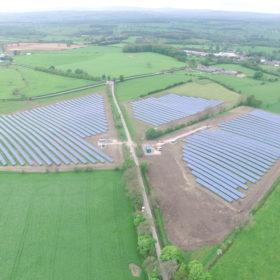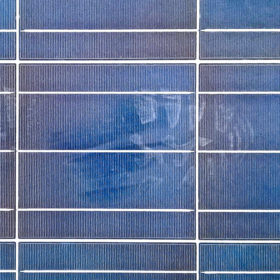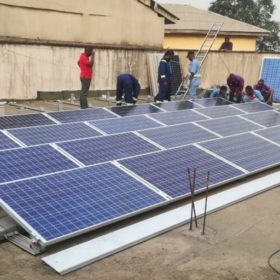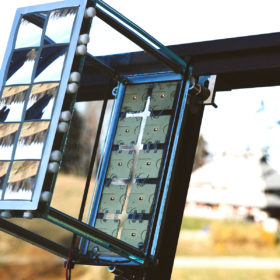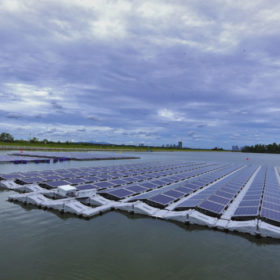Solar ‘could soon be UK’s cheapest source of energy’
The U.K. Solar Trade Association has published a new assessment, finding that the cost of generating solar electricity in the British Isles has already fallen far below its earlier predictions, and could reach GBP 40 (US$50)/MWh by 2030.
Self-tracking solar panels, inspired by a lizard’s feet
Scientists at Harvard University have developed a type of material that can be programmed to move in response to various stimuli, including light. One possible application, says the group, could be in solar panels with integrated microstructures that track the sun without any energy input.
Seraphim expands South African solar cell fab plans to 500 MW
Chinese solar manufacturer Seraphim has announced plans for a 500 MW cell factory in Port Elizabeth, South Africa. The company also plans to expand an existing 300 MW module factory in South Africa’s Eastern Cape region by 200 MW.
Finding the optimal solar cell design to maximize energy production
Researchers in Spain have proposed a new standard for solar cell testing, which they say could enable more accurate determinations of a cell’s annual energy yield. Using machine learning, the method processes data sets consisting of thousands of solar spectra, creating representative examples which can then be used to predict average annual efficiency.
EU-funded initiative set to launch new anti-soiling coating
A project backed by the European Union’s Horizon 2020 program says it has developed a self-cleaning coating for modules which is also anti reflective and weather resistant. The project – SolarSharc – expects to launch the product next year.
Minigrid development a win-win scenario for Nigeria, says Rocky Mountain Institute
A new report from U.S. based Rocky Mountain Institute outlines the potential for minigrid deployment to provide electricity to underserved communities around the world, to the benefit of utility companies, minigrid developers and communities. The report takes examples from Nigeria to illustrate this potential, but states that many of its findings could be applied to communities with limited or no access to electricity around the world.
German and Chinese researchers hit new organic PV record
A team of scientists at Germany’s Friedrich-Alexander Universität Erlangen Nürnberg has set an efficiency record of 12.25% for a non-fullerene based organic solar cell.
Beyond 40% – Fraunhofer ISE hits new module efficiency record
Germany’s Fraunhofer Institute for Solar Energy (ISE) has set a new world record for PV module efficiency. Scientists at the institute achieved 41.4% efficiency for a solar module using both tandem cell and high-concentration PV technology.
German scientists develop new process for stable perovskites
A team of researchers from Germany’s Martin Luther University Halle Wittenberg has developed a new approach to perovskite cell production, which they say could result in better stability and longer lifetimes. The team also made detailed observation of the perovskite’s formation and decay, which could help to inform further research into high performance solar cells.
Sunseap to build 5 MW floating PV at sea
Project developer Sunseap has announced plans for one of the world’s largest PV systems floating on seawater, to be built in the Johor strait which separates Singapore and Malaysia. The 5 MW system is expected to be completed in the first quarter of 2019.

